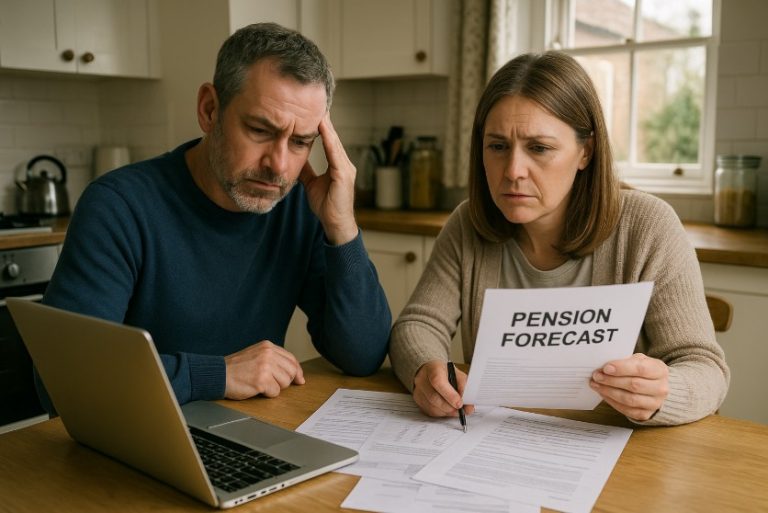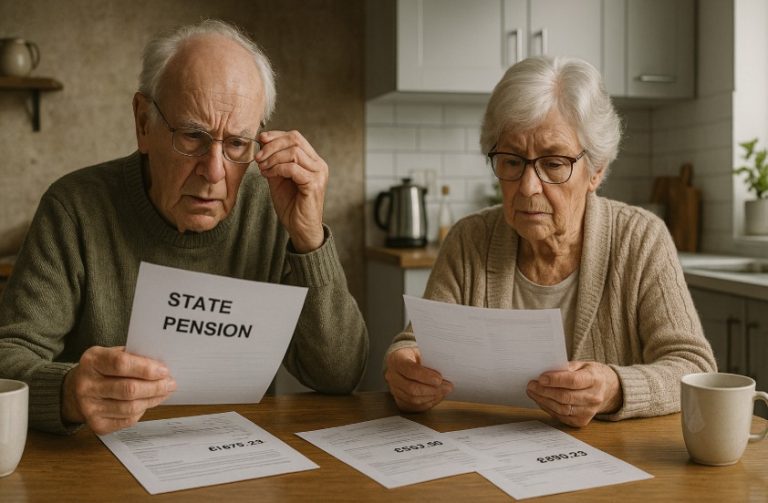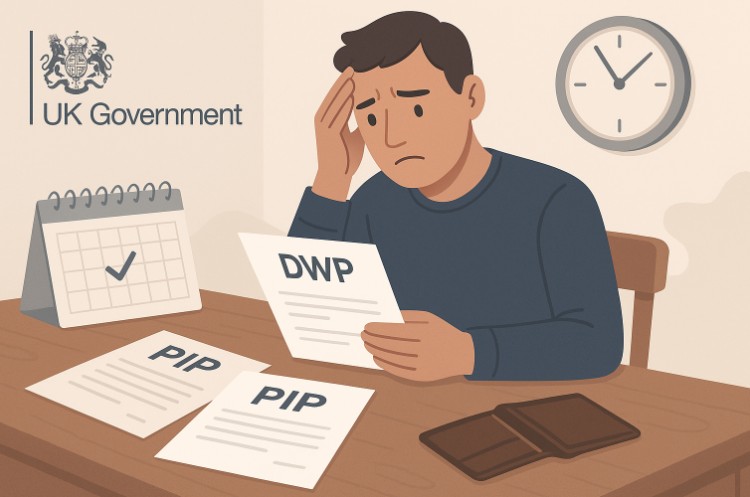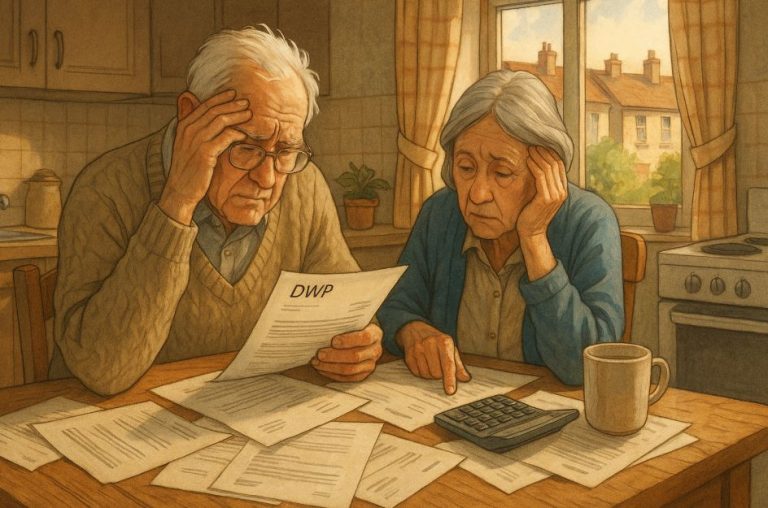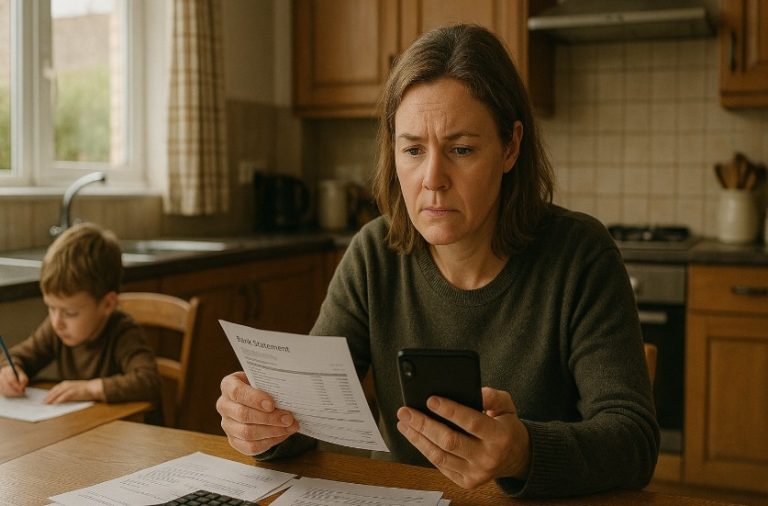Navigating the UK benefits system can be complex, especially when it comes to understanding how Personal Independence Payment (PIP) interacts with the State Pension.
One common question is whether individuals can claim both PIP and State Pension at the same time. The short answer is yes, but there are specific conditions and exceptions to consider.
This guide will walk through the eligibility, exceptions, and what alternatives may be available for people reaching or beyond State Pension age.
What Is PIP and Who Is Eligible for It?

Personal Independence Payment (PIP) is a UK government benefit designed to help individuals aged 16 or over manage the extra costs associated with long-term ill health or disability.
It replaces the Disability Living Allowance (DLA) for working-age adults and includes two parts: the daily living component and the mobility component.
Eligibility for PIP is determined through an assessment by the Department for Work and Pensions (DWP), focusing on how the condition affects a person’s ability to carry out everyday tasks and move around independently.
Unlike some other benefits, PIP is not means-tested, which means it is available regardless of income or savings.
To qualify, individuals must:
- Be aged 16 or over but under State Pension age at the time of application
- Have had the condition for at least 3 months and expect it to continue for at least 9 months
- Live in the UK, with some exceptions for those in the armed forces or living abroad temporarily
PIP can be paid even if the person is working or receiving other benefits, making it one of the most accessible disability-related payments.
What Happens to PIP When You Reach State Pension Age?
Individuals already receiving PIP when they reach State Pension age will usually continue to receive the benefit without any disruption.
The government does not cancel PIP automatically upon reaching retirement age, provided the person continues to meet the eligibility criteria.
In many cases, the award may change in structure. Instead of being reviewed every few years, the benefit may be issued as an indefinite award, which means there is no set end date for payments.
However, these indefinite awards are still subject to periodic “light-touch reviews” designed to confirm that the person’s condition and circumstances remain unchanged.
These light-touch reviews typically involve:
- A short review form rather than a full assessment
- No face-to-face meeting unless significant changes are reported
- Continued payments if no changes are found
This system is designed to provide continued support for long-term health conditions without placing unnecessary burden on older claimants.
Can You Start a New PIP Claim After Reaching State Pension Age?
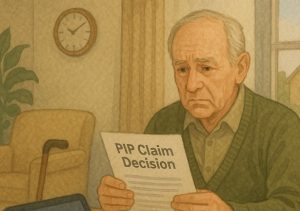
Generally, individuals cannot begin a new claim for PIP after reaching State Pension age. The benefit is intended for people who develop disabilities before retiring.
However, there are a few notable exceptions that allow for late claims under specific conditions.
An individual may be eligible to start a new PIP claim after reaching State Pension age if:
- They were previously receiving PIP or DLA and their award ended within the last 12 months
- They are undergoing a reassessment from DLA to PIP and were born on or after 9 April 1948
Anyone born before 9 April 1948 is not eligible to make a new PIP claim. For most people over State Pension age, the primary alternative benefit is Attendance Allowance.
Is Attendance Allowance an Alternative to PIP?
Attendance Allowance is specifically designed for individuals over State Pension age who need help with personal care due to a physical or mental disability.
Unlike PIP, it does not include a mobility component, but it remains a crucial support for older people with care needs.
Key features of Attendance Allowance include:
- Two rates: a lower rate for people who need help during the day or night, and a higher rate for those who need help both day and night
- No assessment of mobility needs
- Non-means-tested, meaning income and savings do not affect eligibility
Below is a comparison of PIP and Attendance Allowance to help clarify which benefit may apply in different situations:
| Criteria | PIP | Attendance Allowance |
| Age at application | 16 to State Pension age | Over State Pension age |
| Daily living component | Yes | Yes |
| Mobility component | Yes | No |
| Means-tested | No | No |
| Available for new claims after retirement | No | Yes |
| Taxable | No | No |
| Reviewed | Yes (light-touch after 66) | Occasionally |
This table demonstrates that while Attendance Allowance can support older adults with daily care needs, it does not fully replace the mobility component that PIP provides.
Can You Claim PIP and State Pension Together Without Affecting Payments?
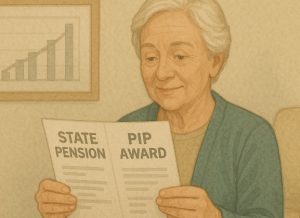
Understanding the Relationship Between PIP and State Pension
PIP is a non-means-tested benefit, which means that income and savings, including the State Pension, do not affect the amount of PIP awarded.
This makes PIP fundamentally different from other welfare benefits such as Pension Credit or Universal Credit, which consider income and assets.
State Pension is also non-means-tested, but it is based on National Insurance contributions. Because both benefits operate independently of each other, one does not reduce or cancel out the other.
Therefore, individuals reaching retirement age while already receiving PIP can continue to receive both payments concurrently.
Can PIP Be Reduced Due to Receiving a State Pension?
No, PIP is not reduced or adjusted when the claimant begins receiving their State Pension. The amount of PIP is based solely on the impact of the claimant’s health condition or disability on their daily life and mobility.
PIP can still be paid in full even if someone:
- Receives a full State Pension
- Has a private or occupational pension
- Owns savings or property
- Is in paid employment after reaching retirement age
The independence of PIP from income makes it an essential benefit for people who need extra support, especially with mobility or personal care, in later life.
Can You Use Both Benefits to Access Additional Support?
Yes, receiving both PIP and the State Pension may open up access to further entitlements, such as:
- Carer’s Allowance: If someone cares for a PIP recipient and meets eligibility criteria
- Motability Scheme: Still accessible to those receiving the enhanced rate mobility component of PIP, even after reaching retirement age
- Council Tax Reduction: Local authorities may offer discounts if a person is on PIP and in receipt of State Pension
- Free or discounted public transport: Particularly where mobility limitations are recognised
These additional forms of support can significantly improve quality of life, especially for older adults managing long-term health conditions.
What Are the Rules If Your Condition Worsens After State Pension Age?
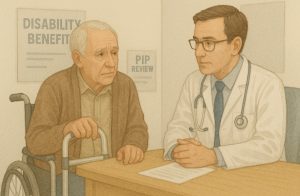
Can a Worsening Condition Increase Your PIP Award?
Yes, if you are already receiving PIP and your health condition worsens after reaching State Pension age, you may request a reassessment.
A worsening condition may justify an increase in either the daily living or mobility component of the benefit.
For example, a person receiving the standard rate for daily living support who now needs assistance with nearly all daily activities may be eligible for the enhanced rate.
Similarly, an increase in mobility issues may move a claimant from standard to enhanced mobility support.
Claimants should report changes such as:
- A new diagnosis or condition
- Increased reliance on mobility aids or care
- Greater difficulty performing daily tasks
- A change in medication or medical interventions
These reports can prompt the DWP to reassess the case and adjust the award accordingly.
What Type of Review Will the DWP Conduct?
If your condition changes, the DWP may initiate a light-touch review or a full reassessment, depending on the details you provide.
- Light-touch reviews are usually carried out through a short form and do not always involve face-to-face assessments.
- Full reassessments may be required in more complex cases or where substantial changes in care or mobility needs are reported.
Claimants must complete and return the necessary forms promptly to avoid interruptions in payments. A decision will then be made based on the new evidence, medical reports, and functional assessments.
What if You Were Not Already on PIP Before Retirement?
If you were not receiving PIP before reaching State Pension age, you cannot start a new PIP claim, even if your health significantly deteriorates. In this case, the correct benefit to apply for is Attendance Allowance.
Attendance Allowance does not provide support for mobility issues, but it does offer:
- Two weekly rates depending on the level of care needed
- Non-taxable and non-means-tested payments
- Flexibility to spend the money on care or daily assistance as needed
Older adults experiencing worsening health are encouraged to apply for Attendance Allowance if they missed the window for PIP before retirement.
Should You Notify the DWP About Changes?
Yes, it is crucial to notify the DWP if your health changes while you are receiving PIP. Not reporting changes could result in:
- Receiving the incorrect level of support
- Possible overpayments, which you may need to repay
- Missed opportunities for increased benefits
You can report a change by contacting the DWP directly via phone or through their postal contact. Medical evidence from your GP or specialist may support your case and speed up reassessment.
How Can You Check Your State Pension Age and PIP Status?
It is important for individuals to confirm whether they fall under the rules for PIP or Attendance Allowance. The best way to do this is by checking their State Pension age and reviewing their benefits history.
Useful steps include:
- Using the State Pension calculator on GOV.UK to find out your pension age
- Reviewing correspondence from the DWP regarding PIP or DLA
- Contacting Citizens Advice or a local benefits adviser to determine eligibility
The DWP also provides a helpline specifically for PIP-related queries, which can offer guidance on current entitlements, upcoming reviews, or changes in health conditions.
In situations where claimants are unsure whether they are entitled to continue receiving PIP or should apply for Attendance Allowance instead, consulting with a benefits adviser is highly recommended.
Here’s a second table that summarises what individuals over State Pension age can do based on their previous PIP or DLA status:
| Scenario | Can You Claim PIP? | Should You Apply for Attendance Allowance? |
| Receiving PIP before retirement | Yes, PIP continues | No |
| Previously on PIP or DLA, ended within last 12 months | Yes, under exception rules | No (unless PIP claim is denied) |
| Never received PIP or DLA, over pension age | No | Yes |
| Health worsens after retirement but no previous PIP claim | No | Yes |
This table clarifies the pathways based on common real-life cases and can guide older adults toward the correct benefit.
Conclusion
In summary, individuals can receive PIP and the State Pension at the same time, provided they began their PIP claim before reaching the State Pension age.
Once that age is reached, new PIP claims are generally not accepted, except in specific cases. In such scenarios, Attendance Allowance may serve as an alternative.
Claimants are advised to monitor changes in their condition, understand their rights, and use official resources like GOV.UK or Citizens Advice to stay updated.
Frequently Asked Questions
Can someone start a new PIP claim after State Pension age?
No, unless they were receiving PIP or DLA before, or the previous claim ended within the past year.
What happens if a person turns 66 while receiving PIP?
The benefit typically continues and may be converted into an indefinite award with light-touch reviews.
Is Attendance Allowance the same as PIP?
No. Attendance Allowance does not cover mobility needs and is available only to those over State Pension age.
Will State Pension reduce the amount of PIP received?
No. PIP is not affected by income, including the State Pension.
Can PIP payments increase if health conditions worsen after retirement?
Yes, provided the individual was already receiving PIP before retirement, they can request a reassessment.
Who cannot apply for PIP at all?
People born before 9 April 1948 generally cannot make a new claim for PIP.
Where can individuals get help with PIP and pension benefit claims?
Organisations like Citizens Advice and the GOV.UK website offer tools and support to guide claimants through the process.


